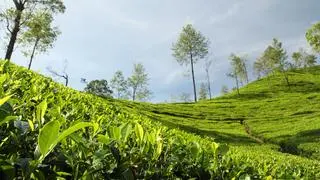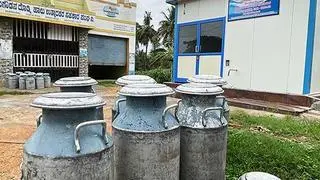The hospitality sector in the Nilgiris, which holds investments worth about ₹250 crore, is facing a big challenge this summer.
“Shortage of rain apart, we are concerned that the civic authorities have not heeded our repeated pleas to dredge the reservoirs during the dry period, which means that when the rains come, much of the water will run waste as the holding capacity will diminish owing to silt accumulation,” N Chandra Shekar, Secretary, Nilgiri Hotel and Restaurant Association, told BusinessLine .
“Since mercury levels are already soaring in the plains, tourists are flocking to the Nilgiris even before the onset of summer festivities in May. We expect higher inflow once schools close. The order books of most hotels show there is substantial increase in demand this summer,” he disclosed.
“Hotels purchase water from private vendors regularly. Depending upon the distance and the volume ordered, hotels pay ₹900 to ₹1,100 per supply of 6,000 litres,” he noted.
“What is worse, Ooty municipality has hiked the water tax for hotels eight-fold this fiscal. Due to increased competition from unlicensed cottages, hotels have been forced to hold their tariffs at their 2012 levels,” Chandra Shekar lamented.
Nilgiris Collector Dr P Sankar said he was liaising with hotels to help them get adequate water for the summer. “In Coonoor, where there is acute scarcity, we have dug six bore-wells, which will supply three lakh litres daily. We have also increased the withdrawal from Guerensey and Bellatimattam reservoirs,” he said.
Focus on conservationThe Taj group of hotels has stepped up its water conservation measures. “We have erected a rainwater harvesting facility, which helps when it rains. We have dug open wells in our marshy land elsewhere and are bringing in groundwater,” said R Muralidharan, General Manager, Taj Gateway Hotel, Coonoor.
“But our focus is on conservation. We have erected water treatment plants and reuse water in our gardens and grow, inter alia, trees. In the kitchen, we adopt a ‘Three Sink’ concept – sanitise, rinse and wash – to reduce water consumption. In our laundry, we run maximum loads with minimal water usage. At banquets, we supply water in smaller volumes to avoid wastage,” he said.
“We have put up sensors to reduce water wastage and in the rooms, bath-tubs have been replaced with showers,” he noted. “All these have helped us to serve guests without their feeling the pinch of the water scarcity,” Muralidharan added.
Tourism in the Nilgiris is centred around nature. “We are facing acute water shortage to maintain the parks. We buy water to irrigate the plants and lawns to ensure that the summer festivities, including the world-famous Ooty Flower Show, on May 19, 20 and 21 go on,” N Mani, Joint Director of Horticulture, Nilgiris district, said.
“The Tamil Nadu government has declared all districts, including Nilgiris, as drought-hit. We have distributed relief fund to farmers,” he said. Coonoor is facing an acute scarcity of drinking water, with the municipality supplying water only once in three weeks.








Comments
Comments have to be in English, and in full sentences. They cannot be abusive or personal. Please abide by our community guidelines for posting your comments.
We have migrated to a new commenting platform. If you are already a registered user of TheHindu Businessline and logged in, you may continue to engage with our articles. If you do not have an account please register and login to post comments. Users can access their older comments by logging into their accounts on Vuukle.